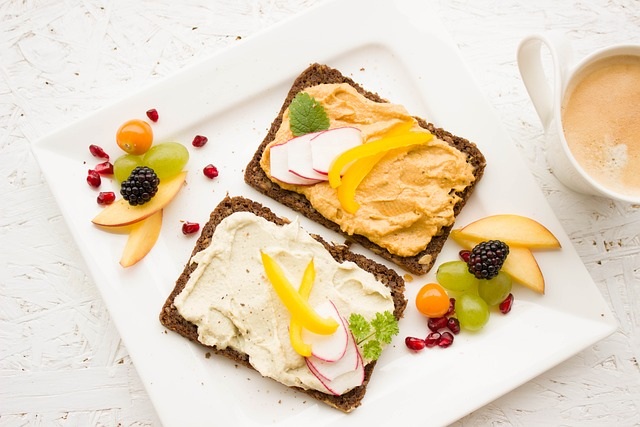Stress Hormones and Weight Gain: What do they have in common and what can you do?
Did you know that having healthy meal plans delivered to your door can reduce the stress hormone called cortisol?
The holiday season is amongst us, and with all the joy and excitement can also bring some stress. It’s normal to have moments of life that are a bit more ‘stressful’ than other times, what matters most is how we handle the stress and what we do to set ourselves up for success.
One way to help yourself during busy, stressful times is to seek help in areas that you can and to take a few things off your plate. For example, meal prep services can really help reduce the amount of time needed to eat healthy. You don’t need to grocery shop, prep, cook, or plan out your meals. And this way you can stick to a healthful diet, which will also help lower stress in the body.

Cortisol 101
Cortisol is a stress hormone made by the adrenal glands, which sit on top of the kidneys. Morning cortisol levels are naturally elevated, which is good and we want cortisol production at that time of the day, as it helps wake us up and regulates our circadian rhythms. Throughout the day, cortisol levels will gradually reduce.
Furthermore, when we are stressed, the adrenal glands release cortisol and raise cortisol levels; versus when we are more relaxed, and in a parasympathetic state, this will reduce cortisol levels.
Let’s be clear that elevated cortisol levels are not always inherently bad. Rather, chronically high cortisol levels and too much cortisol are not good and can have negative health implications.
We want cortisol levels to be high during stressful situations, as a protective mechanism, for example when we are working out our cortisol levels will rise, which is not a bad thing.
However, lowering cortisol levels and coming back into a parasympathetic state is important to avoid negative health issues.
Health Implications of High Cortisol
Cortisol has a role in many different functions in the body, such as controlling our blood sugar, regulating our sleep-wake cycles, metabolism of the macronutrients we consume, controlling blood pressure and reducing inflammation, to name a few.
Chronic stress can lead to many different health issues such as high blood pressure, diabetes, weight gain, insomnia, impaired immune system and ability to fight infections and chronic fatigue to name a few.
High cortisol levels will put the body in a sympathetic nervous system state, which creates an environment of alertness.
You may feel your heart rate racing, feel shaky or sweaty, get lightheaded, feel as though you can’t concentrate or have brain fog.

Lifestyle Changes to Manage Cortisol Levels
Nutrition:
Nutrition can play a role in managing cortisol levels and stress. A diet filled with whole foods, lots of fruits and vegetables, lean proteins, healthy fats, fibre and whole grains will help promote lower cortisol levels. Furthermore, a diet filled with foods high in added sugar, processed foods, refined grains and saturated fats can result in elevated cortisol levels.
Micronutrients:
Magnesium, vitamin B12, Folic Acid, and Vitamin C are a few micronutrients that have been shown to help lower cortisol levels. In addition, fish oil or fatty fish can be another supplement that has been shown to help reduce cortisol levels.
Sleep:
It is no secret that we all need to get a good night’s sleep in order for our bodies to repair. Both sleep quality and quantity are important factors for reducing cortisol levels and stress. This will also help our well-being and can have a positive influence on our mental health.
Deep breathing:
Deep belly breathing has been shown to be effective in activating your parasympathetic nervous system, which will help reduce stress hormones, such as cortisol. Deep breathing has also been shown to help with anxiety, and depression, reduce stressful thoughts, and improve one’s mental well-being.
Exercise:
Exercise will help with sleep quality, reduce stress, and improve your overall health, which can all in turn help reduce cortisol levels. All forms of exercise, be that strength training, cardio, walking, yoga, etc have been shown to help reduce stress levels.
Stress Management Strategies:
- spending time in nature, partaking in a hobby, getting creative and expressing yourself
- staying hydrated, reducing caffeine intake
- caring for a pet, socializing with others, laughing
- meditation, gratitude, journalling, self-care
There are many different stress reduction techniques and lifestyle changes to help lower your cortisol response. It’s always recommended to try a few out and see what works for you during stressful events.

Stress and the Holiday Season
Amongst all the joy, happiness, love, laughter and excitement the holiday season brings us, in reality, sometimes it can also be very stressful. The holidays can be a time that is very busy. There are only so many hours in the day and so many days in the week.
Oftentimes, when we have extra errands to run, we tend to put our health and healthy habits on the back burner, as we think they are not ‘necessary’. And while yes, we need to go to work and can’t skip certain life responsibilities, it does not mean that our health needs to be forgotten either.
In order for us to show up for others, we too need to take care of ourselves. That said, we may not have as much time to meal prep, our workouts may need to be a little shorter, and we may not be able to do a daily self-care activity, however, that doesn’t mean nothing can be done.
Instead of meal prepping ourselves, we can look to a meal prep service like Athletes Kitchen. Instead of doing workouts that are an hour long 5 times a week we can do 45 minutes 3 times a week. Instead of 30 minutes of self-care every day we can do something for 5 minutes maybe twice a day.
Understanding Stress and Weight Gain
The relationship between stress and weight gain is very complex and multilayered.
When we are stressed, our bodies usually want quick sugars. This can lead us to make poor dietary choices and ‘eat our feelings’. Ice cream, pizza, pasta, cookies etc are often go-to foods when we are emotionally stressed and not physiologically hungry. Over time, this can lead to an increase in energy creating a surplus which will end up resulting in weight, specifically fat gain.
Furthermore, with elevated cortisol levels, our blood pressure and insulin levels will rise, which will drop your blood sugar levels, making you crave sugar. This will also contribute to poor nutrition choices.
Additionally, we know that stress can impact your sleep, which can impact your nutrition choices as you are hungrier the day after a poor night’s sleep and you tend to crave sugary foods. Again because the body wants quick energy.
How Athletes Kitchen Can Help
Investing in a meal prep service that can help you take off one thing on your plate during the busy holiday season can really help you not only stay healthy, rather also help reduce your stress and cortisol levels.
Athlete’s Kitchen offers a wide variety of meal plans, from vegan to vegetarian, to pescatarian. Athlete’s Kitchen has low, moderate, and high-carb options to meet your nutritional requirements. Meals are all made with wholesome fresh ingredients, with plenty of fruits, vegetables and fibre.
Athlete’s Kitchen delivers twice a week on Wednesdays and Sundays and has a rotating menu, which means that you won’t get bored with repetitive meals! In addition, there are ample sides like breakfast, desserts, muffins, energy bars, protein sides, fruits, oatmeal, nuts and much more!
What’s also great about Athlete’s Kitchen is their nutritionist Diane provides nutritional consultations to help clients choose the right meal plan for them.
Be sure to check out the next meal and book a call with Diane for more support.

Eating Right During Stressful Times
There are many strategies to combat stress during busy times, like prioritizing sleep, movement and self-care. Those are super important and should be considered in addition to your diet.
As mentioned above, stress can have a huge influence on your dietary choices for the negative because our bodies are craving quick carbs and sugary foods. Therefore, it is essential for us to do what we can to help reduce our stress and stay diligent in maintaining our healthy habits.
Even in times of stress, we want to ensure we are eating a well-balanced diet that is filled with fruits, vegetables, fibre, lean proteins, whole grains and healthy fats. Yes, we can also indulge in the occasional treat, and it may be a bit more often than normal, however, that doesn’t mean all our meals need to be sugar-filled and high in processed foods.
Utilize Services to Support you during this Holiday Season
This holiday season, instead of going through the drive-through or skipping meals altogether, be proactive and place an order with Athlete’s Kitchen. Bonus, AK meals can be frozen and with our new packaging our meals last longer!
Booking a call with our nutritionist Diane, can help you set some non-negotiables this holiday season for you to stay on track. Remember it’s not always about optimizing, rather doing the bare minimum sometimes is all we can do. If that means we go for a 20-minute walk instead of 40 that is OK, at least we went for 20!

